With new technologies revolutionizing data collection, wildlife researchers are becoming increasingly able to collect data at much higher volumes than ever before. Now we are facing the challenges of putting this information to use, bringing the science of big data into the conservation arena. With the help of machine learning tools, this area holds immense potential for conservation practices. The applications range from online trafficking alerts to species-specific early warning systems to efficient movement and biodiversity monitoring and beyond.
However, the process of building effective machine learning tools depends upon large amounts of standardized training data, and conservationists currently lack an established system for standardization. How to best develop such a system and incentivize data sharing are questions at the forefront of this work. There are currently multiple AI-based conservation initiatives, including Wildlife Insights and WildBook, that are pioneering applications on this front.
This group is the perfect place to ask all your AI-related questions, no matter your skill level or previous familiarity! You'll find resources, meet other members with similar questions and experts who can answer them, and engage in exciting collaborative opportunities together.
Just getting started with AI in conservation? Check out our introduction tutorial, How Do I Train My First Machine Learning Model? with Daniel Situnayake, and our Virtual Meetup on Big Data. If you're coming from the more technical side of AI/ML, Sara Beery runs an AI for Conservation slack channel that might be of interest. Message her for an invite.
Header Image: Dr Claire Burke / @CBurkeSci

Explore the Basics: AI
Understanding the possibilities for incorporating new technology into your work can feel overwhelming. With so many tools available, so many resources to keep up with, and so many innovative projects happening around the world and in our community, it's easy to lose sight of how and why these new technologies matter, and how they can be practically applied to your projects.
Machine learning has huge potential in conservation tech, and its applications are growing every day! But the tradeoff of that potential is a big learning curve - or so it seems to those starting out with this powerful tool!
To help you explore the potential of AI (and prepare for some of our upcoming AI-themed events!), we've compiled simple, key resources, conversations, and videos to highlight the possibilities:
Three Resources for Beginners:
- Everything I know about Machine Learning and Camera Traps, Dan Morris | Resource library, camera traps, machine learning
- Using Computer Vision to Protect Endangered Species, Kasim Rafiq | Machine learning, data analysis, big cats
- Resource: WildID | WildID
Three Forum Threads for Beginners:
- I made an open-source tool to help you sort camera trap images | Petar Gyurov, Camera Traps
- Batch / Automated Cloud Processing | Chris Nicolas, Acoustic Monitoring
- Looking for help with camera trapping for Jaguars: Software for species ID and database building | Carmina Gutierrez, AI for Conservation
Three Tutorials for Beginners:
- How do I get started using machine learning for my camera traps? | Sara Beery, Tech Tutors
- How do I train my first machine learning model? | Daniel Situnayake, Tech Tutors
- Big Data in Conservation | Dave Thau, Dan Morris, Sarah Davidson, Virtual Meetups
Want to know more about AI, or have your specific machine learning questions answered by experts in the WILDLABS community? Make sure you join the conversation in our AI for Conservation group!
MSc in AI for Sustainable Development at UCL
- 0 Resources
- 0 Discussions
- 1 Groups
- @aniyaz533
- | Niyaz
A keen willdlife biologist looking forward to work on Otters ecology in Himalayan landscape
- 0 Resources
- 0 Discussions
- 5 Groups
I'm a computer engineer with a master's degree in Artificial Intelligence, I love nature and wildlife
- 0 Resources
- 4 Discussions
- 2 Groups
- @tmcgrath
- | He / Him
Geographer, Program Manager, Engineering Manager
- 0 Resources
- 1 Discussions
- 11 Groups
A Marine Conservationist based in Malaysia
- 0 Resources
- 0 Discussions
- 5 Groups
- @lqmeyers
- | he/him
Graduate Student Researcher interested in computer vision, agro-ecology, and sustainability.
- 0 Resources
- 0 Discussions
- 4 Groups
Snow Leopard Trust
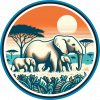
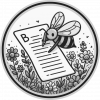
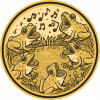
- 0 Resources
- 44 Discussions
- 6 Groups
- @jcturn3
- | He/Him
Colorado State University
I am a graduate student at Colorado State University working to develop novel acoustic technology for remotely monitoring wildlife.


- 0 Resources
- 14 Discussions
- 3 Groups
- @KiaraHaylock
- | She/Her
PhD in Animal Ecology and Behavioural Physiology. Interested in the movement, behavioural and physiological responses of animals to environmental variability.
- 0 Resources
- 0 Discussions
- 13 Groups
20+ years traveler and management consultant turned tech founder and conservationist. Founder & CEO of ZAMBEZI ZERØ; super intelligence to safeguard biodiversity.
- 0 Resources
- 0 Discussions
- 15 Groups
Product Designer focusing on a project about marine mammal conservation.
- 0 Resources
- 2 Discussions
- 2 Groups
- @eaglass25
- | she/her
Fauna & Flora
Programme Officer at the Conservation Leadership Programme
- 0 Resources
- 0 Discussions
- 3 Groups
Article
At the 2018 London Illegal Wildlife Trade Conference, we announced the WILDLABS Tech Hub, an accelerator program created to support the development and scaling of groundbreaking technological solutions addressing the ...
26 March 2020
Trapped inside during the COVID-19 quarantine and looking to engage with conservation science without leaving your desk? Citizen science projects like those on Zooniverse offer a great opportunity to impact scientific...
18 March 2020
Machine learning is rapidly expanding as a useful field research tool, but its complexity can intimidate even seasoned tech conservationists. Edge Impulse aims to make machine learning solutions accessible,...
16 March 2020
The Esri Conservation Program is now accepting applications for grant assistance to access its ArcGIS Solutions for Protected Area Management Application. This system provides access to a suite of both mobile and web...
4 March 2020
The 2020 Tusk Awards are now accepting nominations of outstanding individuals who have made a significant impact on conservation in Africa. These nominations offer the rare and exciting opportunity to honor your peers...
3 March 2020
Are you ready for the Plastic Data Challenge? This global contest wants your innovative ideas for improving the plastic waste management and recycling chain in South and Southeast Asia. Participants can consider...
3 March 2020
Conservation X Labs welcomes you to enter the Artisanal Mining Grand Challenge, a competition aimed at finding new and innovative solutions to the environmental problems caused by mining operations. This competition...
26 February 2020
Researchers are increasingly placing microphones in forests and other ecosystems to monitor birds, insects, frogs, and other animals. As the technology advances and becomes less costly, proponents argue, bioacoustics is...
24 February 2020
The Arribada Initiative is back with an update on their thermal elephant alert system which aims to reduce human-elephant conflict (HEC). The success of their system rests on the ability of a camera to accurately...
17 February 2020
Applications are now open for a second round of the £10 million UK Seafood Innovation Fund to transform the future landscape of the seafood industry.
11 February 2020
Fueled by Artificial Intelligence, Wildlife Insights provides access to over 4.5 million camera trap records.
17 December 2019
Ahead of the upcoming Camera Trapping Sympoisum, organiser Arie Hammond has compiled a list of key resources for camera trapping, covering everything from reading lists for beginners to data sets, models and tools for...
5 November 2019
June 2025
event
event
July 2025
October 2025
event
event
73 Products
Recently updated products
16 Products
Recently updated products
| Description | Activity | Replies | Groups | Updated |
|---|---|---|---|---|
| Another question. Right now pretty much all camera traps trigger on either PIR sensors or small AI models. Small AI models would tend to have a limitation that they would... |
|
AI for Conservation, Camera Traps, Data management and processing tools, Open Source Solutions, Software Development | 3 months 2 weeks ago | |
| Hi Lucille,Thank you for your reply! We’d be really interested in learning more about your developments. We’ll contact you soon to arrange a discussion.Thank you.Best regards,... |
|
Acoustics, AI for Conservation, Sensors | 3 months 2 weeks ago | |
| Hi Lorenzo,I highly recommend the OpenSoundscapes package (developed by the Kitzes Lab at U Pittsburgh) - there are workflows to build your own CNNs there, the documentation is... |
|
Acoustics, AI for Conservation, Animal Movement, Open Source Solutions | 3 months 3 weeks ago | |
| This is probably seen a bit as "self-branding" which I hope is alright, otherwise please let me know! I have spent the past few months... |
|
AI for Conservation | 3 months 3 weeks ago | |
| We are putting together a special issue in the journal Ostrich: Journal of African Ornithology and are welcoming (review) papers on the use of AI in bird research. https://www.... |
|
AI for Conservation, Software Development, Citizen Science, Data management and processing tools | 3 months 3 weeks ago | |
| Hi Adrien,Submissions are open for the special addition. Please email David Ehlers Smith - david.ehlers.smith@birdlife.org.za for more details. We are also soliciting reviewers.... |
|
AI for Conservation | 3 months 3 weeks ago | |
| Hello everyone!During my master thesis in engineering (past autumn), I developed Machine Learning for anti-poaching. As such, I recorded a... |
|
Acoustics, AI for Conservation, Data management and processing tools | 3 months 3 weeks ago | |
| Hey everyone! We’re Deep Voice Foundation, a non-profit using AI to help conserve marine wildlife. We develop acoustic... |
|
Acoustics, AI for Conservation | 3 months 4 weeks ago | |
| Hello everyone. My name is Bilal. I recently graduated with a degree in bioengineering and hold a bachelor's degree in computer science,... |
|
AI for Conservation, Animal Movement, Human-Wildlife Conflict, Marine Conservation | 4 months 1 week ago | |
| Hey, please find here a dataset about nocturnal bird calls in Europe |
+5
|
Acoustics, AI for Conservation, Software Development | 4 months 2 weeks ago | |
| Hi Simon,We (Reneco International Wildlife Consultants) have an ongoing collaboration with a local University (Abu Dhabi, UAE) for developing AI tools (cameratrap/drone... |
|
Acoustics, AI for Conservation, Animal Movement, Camera Traps, Citizen Science, Connectivity, Drones, Early Career, eDNA & Genomics, Marine Conservation, Protected Area Management Tools, Sensors | 4 months 2 weeks ago | |
| @HeinrichS there’s still time for you or anyone else to make a funding submission to the wildlabs 2025 grants ❤️❤️❤️I haven't applied for wildlabs funding, but I would love for... |
|
Human-Wildlife Conflict, AI for Conservation, Camera Traps, Emerging Tech | 4 months 2 weeks ago |
GWP Webinar Recording: Using SMART at scale for effective wildlife protection
21 May 2019 12:00am
WILDLABS TECH HUB Showcase
17 May 2019 12:00am
Meet the WILDLABS TECH HUB Winners
13 May 2019 12:00am
Huge appetite for data trusts, according to new ODI research
15 April 2019 12:00am
Call for Papers: Data Mining and AI for Conservation Workshop at KDD 2019
15 April 2019 12:00am
Call for Papers: Thematic issue of Environment Conservation on ‘Conservation Artificial Intelligence’
26 March 2019 10:12am
WILDLABS Virtual Meetup: Low Cost, Open-Source Solutions
18 March 2019 12:00am
#Tech4Wildlife Photo Challenge: Our Favourites from 2019
3 March 2019 12:00am
Conserving the Sumatran and Javan Rhino
15 January 2019 7:39pm
24 February 2019 1:28am
Hi Claire,
At the BearID Project, we are working on a similar problem for brown bears. We are currently using machine learning methods developed for human facial recognition (like Google FaceNet). We got some ok initial results, but now we are running up against small data issues. The method for human faces were trained with millions of images of hundreds of thousandes on individuals. We have a few thousand images of about a hundred individuals. We plan to investigate other methods in the future.
It will be great to keep in touch to see what methods you will be using.
Ed
24 February 2019 1:38am
Hi Colin,
At the BearID Project, we are working on a similar problem for brown bears. We are currently using machine learning methods developed for human facial recognition (like Google FaceNet). We got some ok initial results, but now we are running up against small data issues. The method for human faces were trained with millions of images of hundreds of thousandes on individuals. We have a few thousand images of about a hundred individuals. We plan to investigate other methods in the future.
The last time I talked to WildMe, the identification algorithms were based on matching unique patterns. We didn't think this would be directly applicable for brown bears as they don't have a lot of clearly identifiable markings. Have you developed other identification algorithms?
Ed
Responsible AI for Conservation?
11 February 2019 6:22pm
21 February 2019 8:17am
Hi Jaishanker
Absolutely - the overlap between image-based and sound-based analyses is increasing, and consistent terminology will no doubt help us share info.
Are you using ML in SODA for automated identification of sounds? If so, how are you determining if a given classifier is performing well?
Thanks
Ollie
21 February 2019 11:08am
Hello Ollie,
SODA is a recently launched suite. It is in the development phase. We have with us call libraries with multiple (40+) calls for 10- 12 species of birds. A research scholar is on the job for classifying at the species level.
Our interest is equally on separating the different sonic components (as stated in https://www.wildlabs.net/community/thread/666). It is different from the link shared in my previous reply. This is where I see the confluence of objectives.
As a TEAM, I believe, we can address the individual objectives faster.
regards
jaishanker
21 February 2019 9:13pm
Hi Ollie,
Great article, thank you! I mostly work with responsible AI in other contexts, at Doteveryone.org.uk and the Trust & Technology Initiative at the University of Cambridge, so don't have much to offer here, although I am very interested in the topic. I appreciate your point that many of the consumer data issues highlighted in the 'popular' responsible AI discourse aren't relevant to conservation (some of us have been gathering 'responsible tech' / 'ethical tech' resources in a shared doc, and there's essentially nothing there for conservation specifically - https://docs.google.com/document/d/1SN6hYeKe3eRK6x9D0Sr7GpCA4nirpyo3u68xG1A6NDs/edit ). However there might be some links with humanitarian data practices, which are touched on by the Responsible Data folks at https://responsibledata.io and https://www.fabriders.net/data-literacy-consortium/ or in this recent article https://asecondmouse.wordpress.com/2019/02/20/instability-forecasting-models-seven-ethical-considerations/
Best,
Laura
Using Swiss AI and Drones to Count African Wildlife
18 February 2019 12:00am
ChimpFace: Facial recognition to combat wildlife trafficking
6 February 2019 12:00am
UK’s first data trusts to tackle illegal wildlife trade and food waste
31 January 2019 12:00am
The Ecosulis Rewilding Tech Challenge
14 January 2019 12:00am
WILDLABS Virtual Meetup: Big Data in Conservation
27 November 2018 12:00am
Canopy cameras shed new light on monkey business in Brazil
22 November 2018 12:00am
A technologist's journey to protect wildlife: The reality and potential of conservation technology (recorded talk)
22 November 2018 12:00am
WILDLABS Virtual Meetup: Networked Sensors for Security and HWC Prevention
12 November 2018 12:00am
Tusk Conservation Lecture 2018: Ted Schmitt
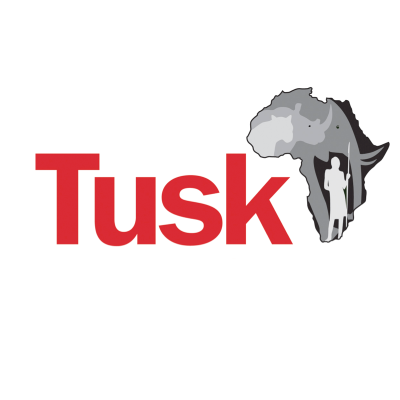 Tusk
Tusk
15 October 2018 12:00am
Biology Undergrad Attempts Automated Species Recognition Using MacBook Air and Google
1 October 2018 12:00am
How to share data on species to help conserve them… whilst avoiding them being exploited by poachers
20 August 2018 12:00am
Ocean Hack: San Francisco, 10-11th September, 2018
 One Ocean Collab
One Ocean Collab
20 August 2018 12:00am
Thermal Sensor Project Update: Testing with live animals at the San Diego Zoo
27 July 2018 12:00am
31 March 2023 2:15pm
$90K in grants from the Con X Tech Prize
11 June 2018 12:00am
Webinar: Artificial Intelligence for Earth, Microsoft Research
 Eye on Earth Alliance
Eye on Earth Alliance
23 April 2018 12:00am
HWC Tech Challenge: Thermopile Sensor Project
19 April 2018 12:00am
BES Guide to Reproducible Code
27 March 2018 2:50pm
#Tech4Wildlife Photo Challenge 2018: Our Top 10
3 March 2018 12:00am
Congratulations to Zoohackathon winners, team ODINN!
6 December 2017 12:00am
FIT Cheetahs
4 December 2017 12:00am











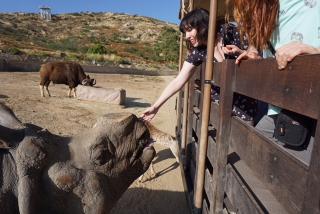


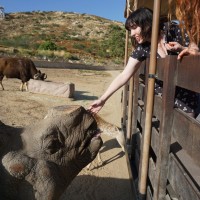



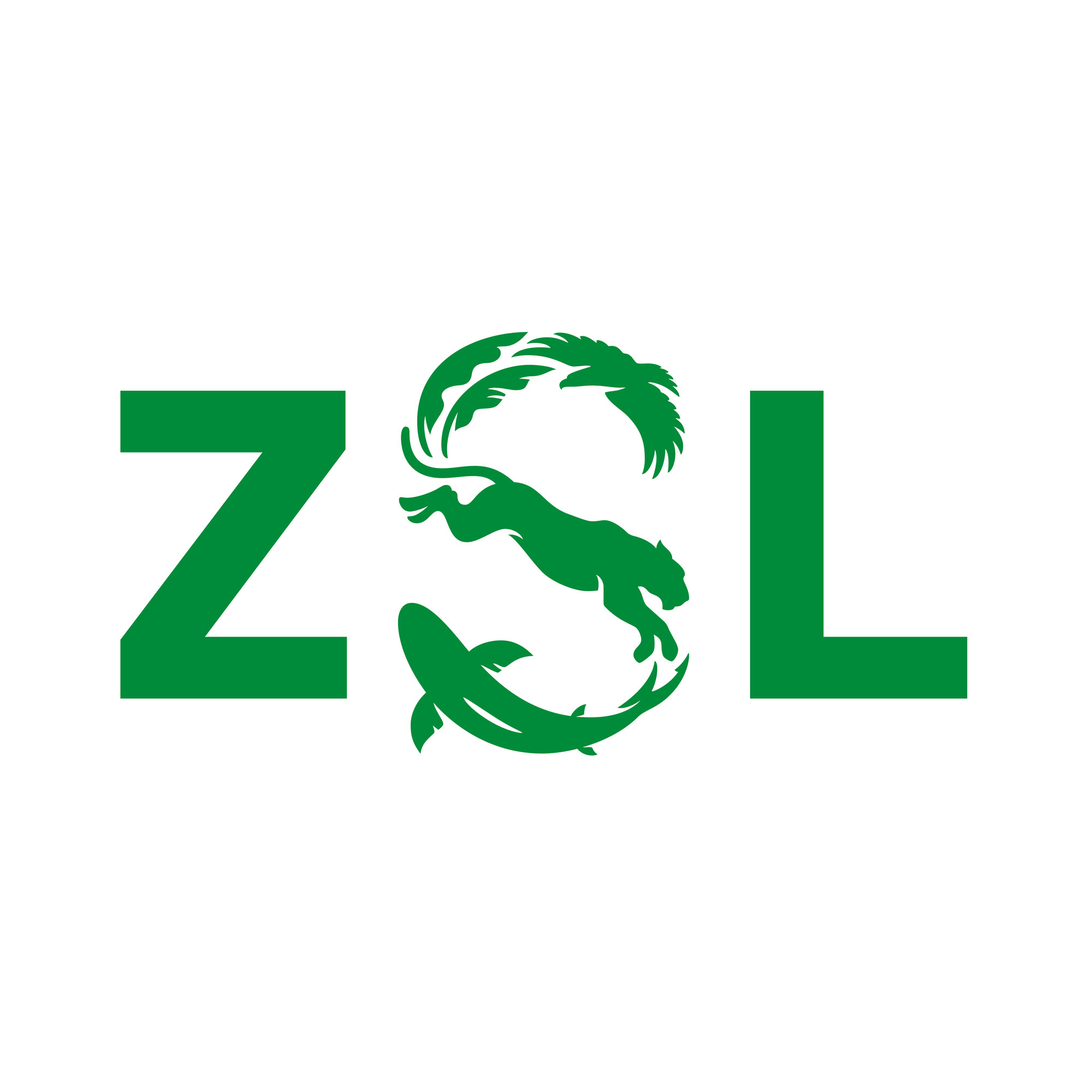
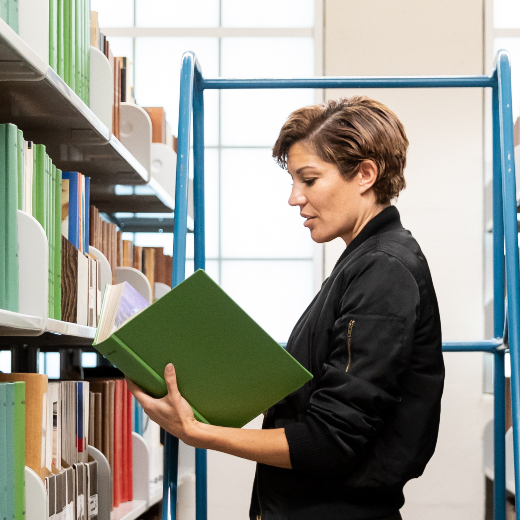
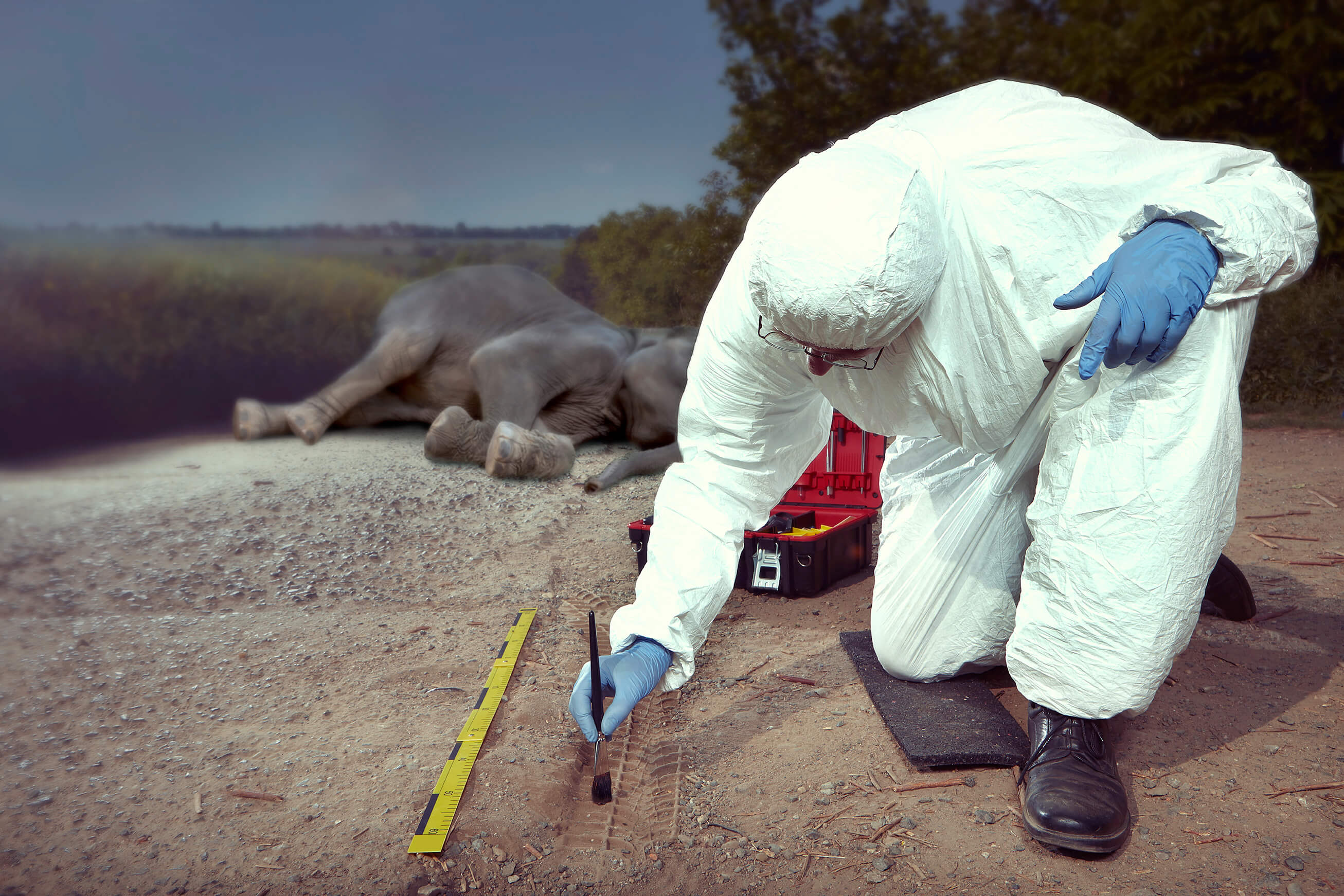
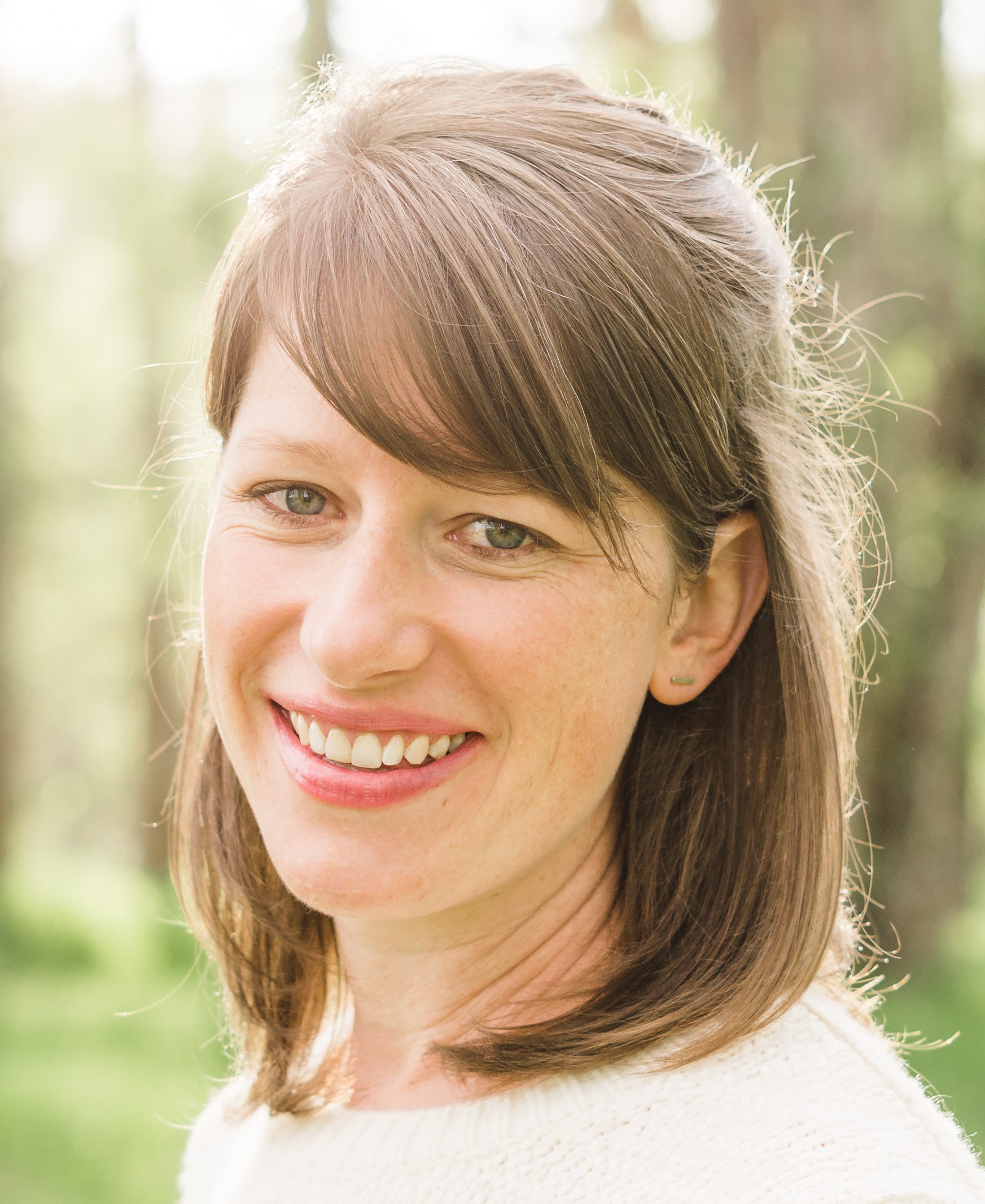





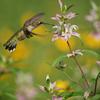























23 January 2019 10:12pm
Hello Claire,
Engineer at Wild Me here. We would love to start a conversation about a Wildbook for rhinos.
Lets talk about citizen science and computer vision for identification possibilities. I'm curious about your current data set and the identification tools you are using as a starting point. I'm happy to talk here, or you can email our team at services@wildme.org.